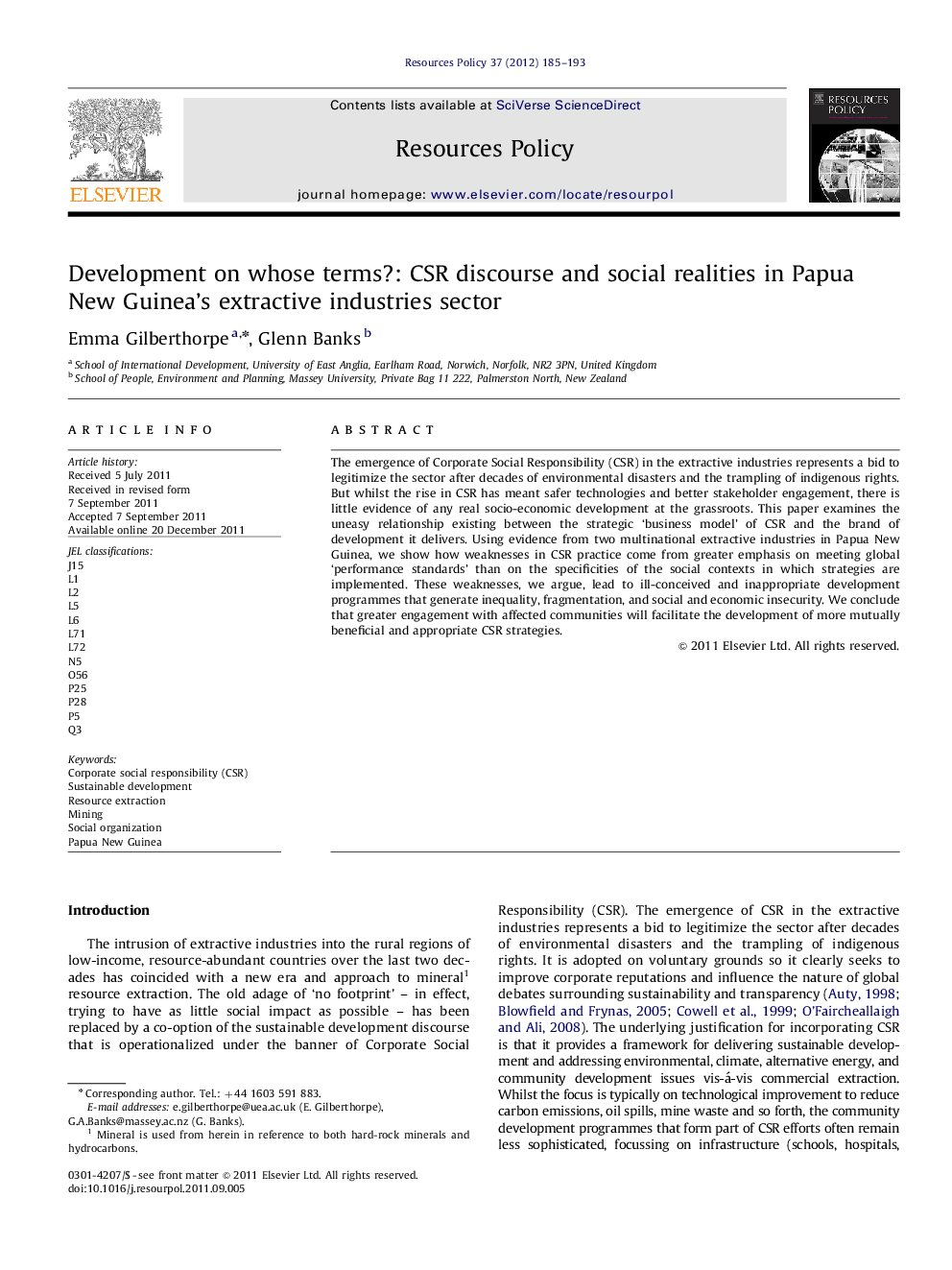| Article ID | Journal | Published Year | Pages | File Type |
|---|---|---|---|---|
| 985929 | Resources Policy | 2012 | 9 Pages |
The emergence of Corporate Social Responsibility (CSR) in the extractive industries represents a bid to legitimize the sector after decades of environmental disasters and the trampling of indigenous rights. But whilst the rise in CSR has meant safer technologies and better stakeholder engagement, there is little evidence of any real socio-economic development at the grassroots. This paper examines the uneasy relationship existing between the strategic ‘business model’ of CSR and the brand of development it delivers. Using evidence from two multinational extractive industries in Papua New Guinea, we show how weaknesses in CSR practice come from greater emphasis on meeting global ‘performance standards’ than on the specificities of the social contexts in which strategies are implemented. These weaknesses, we argue, lead to ill-conceived and inappropriate development programmes that generate inequality, fragmentation, and social and economic insecurity. We conclude that greater engagement with affected communities will facilitate the development of more mutually beneficial and appropriate CSR strategies.
